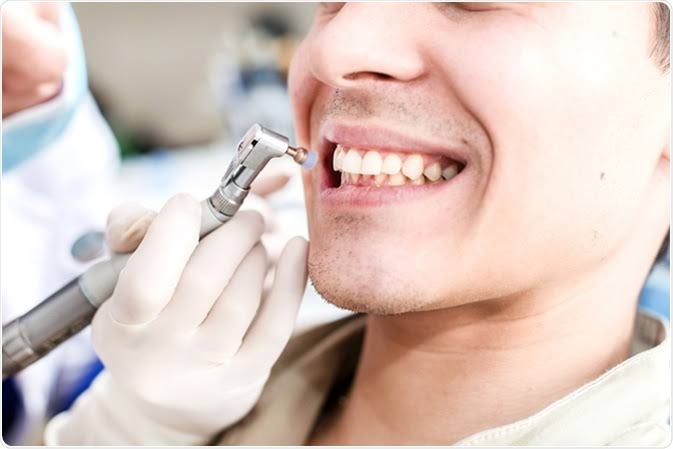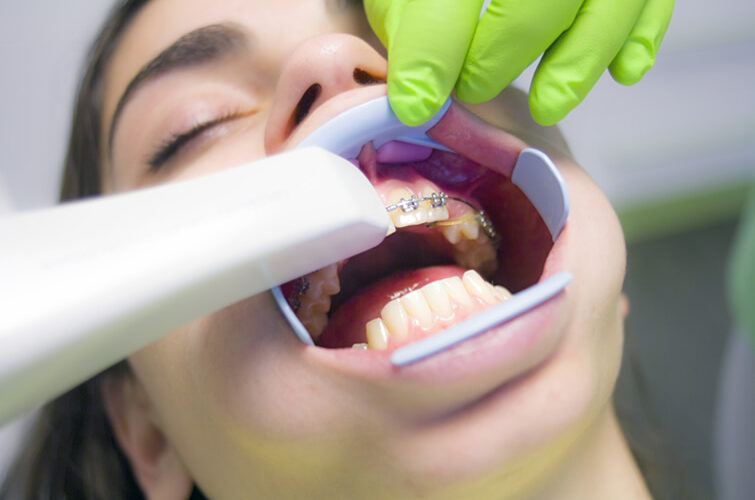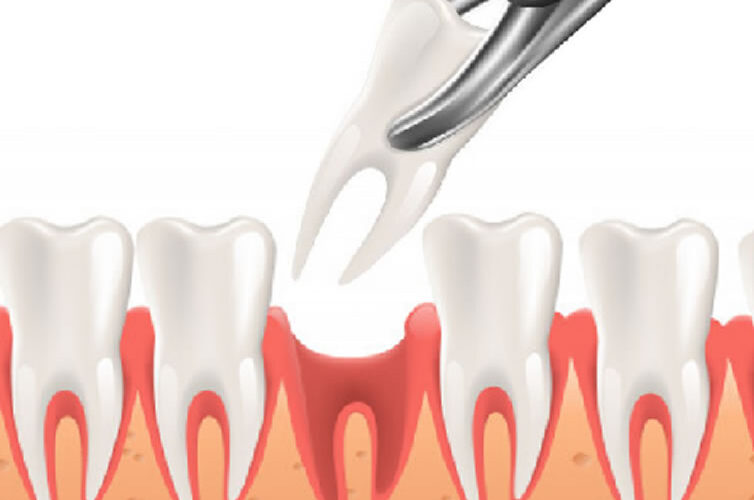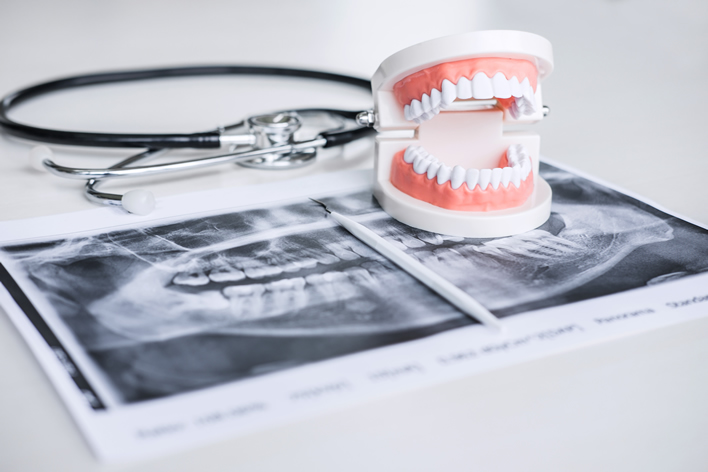What is cleaning and polishing?
Dental cleanings involve removing plaque which is a soft, sticky layer made up of food, bacteria and saliva and removing hard tartar (calculus) deposits that have built up on the teeth over time. Your teeth are continually bathed in saliva which contains calcium and other substances which help strengthen and protect your teeth. While this is definitely beneficial, but overtime it leads to a buildup of tartar which makes it difficult to maintain oral hygiene and leads to gum problems in the long run.
Usually, it is tooth coloured and can easily be mistaken as part of the teeth, but it can also vary from yellow, brown to black in colour. It is difficult to remove it with a regular toothbrush, professional cleaning is essential in this case.
If this tartar is allowed to build up on the teeth, it will harbour the growth of bacteria in the oral cavity and will cause harm to the gums and bone.
The purpose of cleaning and polishing is basically to clean the surfaces of the teeth so as to prevent any bacterial growth over them and help in maintaining oral hygiene.
Cleaning and polishing is needed if you have bleeding gums, bad breath or tooth stains. Polishing is usually done to remove stains caused by food (coffee/tea) or tobacco and cleaning is done to remove tartar or calculus and prevent gum diseases.
Cleaning should generally be done every 6 months to keep our gums healthy.
What are the steps involved in cleaning & polishing?
Scaling/ Cleaning
Specialized instruments are used to gently remove plaque and calculus deposits without harming your teeth. The ultrasonic scaler uses vibrations to loosen hardened tartar that sticks to the teeth/in between teeth while the water spray washes away the debris.
Polishing
Polishing is usually carried out after scaling to remove stains and make your teeth feel smooth and shiny. Polishing is done using a prophylactic paste with a soft rubber cup that spins.
Why Us?
At Holy Dental Care, we ensure that scaling doesn’t cause any detrimental effects on the enamel. We only remove the tartar deposits and not touch the tooth surface causing any damage. Patients are informed about sensitivity which may occur after the cleaning that subsides in 1-2 days. To reduce patient discomfort we usually recommend them to use an anti-sensitive toothpaste.




